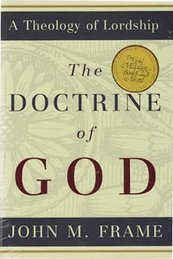As a church with a long history, it is inevitable that the style of worship undergo some changes. For those who have been in the (Methodist) church for decades, the change/ transformation should be evident. For instance, we see less hymnal, less organ, and more 'praaise songs' being used. As a Methodist, regardless of the change, I think we need to let (God through) worship transforms us. We change the style of worship, but are we changed? Nobody should enter into worship and remain unchanged. Put differently, if we worship faithfully, those who knew us in our “former lives” should hardly recognize us in our new lives.
But are we really changed? Are we portraying Christ in our lives? Are we leading a life that is pleasing to God? As one author puts it:
In sham worship we are the center of attention, not God, and God is admitted into worship only insofar as God is useful to us. […] sham worship is not only dishonest but it is also a colossal waste of time.
True Christian worship allows God to work on us, sanctifying us, gracing us, purifying, renewing, and reforming us; indeed, doing all that is necessary to make us new creatures in Christ.
This is why from the beginning the church has described this startling transformation as a death and rebirth, as a burial of one way of living, thinking, perceiving, and acting and a resurrection into a radically new king of life that is gracious and abounding in hope because it is life in, with, and according to Christ. (Paul J Waldell, Becoming Friends
A transformed/changed life produces correct living. While correct doctrine (orthodoxy) is important, correct living is also important (orthopraxy). A transformed/changed life (a "broken and contrite heart") shows God's transformative grace within us. A Christian who has a changed life love his brother. If we don't love our brother, it shows we have not been transformed. If we don't love our brother, it shows the love of God is not in us. Thus, by loving one another shall the world know who God's people are.
What part does worship play in the renewal/transformation of a Christian's life? Worship allows God to work on us, sanctifying us, gracing us, purifying, renewing, and reforming us; indeed, doing all that is necessary to make us new creatures in Christ. Does Charismatic worship produces renewed lives? This is not an easy question to answer. We are in no position to judge, and only God knows. But if we are really truthful to ourselves, we should ask ourselves, how has God transformed me? How am I different from my “former lives”? Most importantly, do we love our brother? Many Christians have no problem with the first two questions, but the third is not easy to answer (if we are truthful)!
A renewed life is worth more in the eyes of God than being in the so called "correct" worship. We can be in the "correct" worship, but has a untransformed life (initially). However, true Christian worship can eventually lead us to a transformed life. In contrast, "incorrect/false" worship does not lead to a transformed life. However, it seems more Christians are placing an increasing focus so much on the entertainment value of the worship service that we fail to realise the importance of the content of the worship service. Many traditional mainline churches may not have the type of 'power-packed' and energising worship one may find in a megachurch, but the content is more or less biblical. Not that megachurch teaches entirely unbiblical doctrine, but the prosperity theology expounded can certainly be detrimental to the Christian life. A theology that focuses on the material things in life is unlikely to produce changed life! Very often, it seems Christians act no different from a non-Christian.
The correct/ true Christian worship should be one that allows God to work on us, sanctifying us, gracing us, purifying, renewing, and reforming us; indeed, doing all that is necessary to make us new creatures in Christ. If there is no Christian life, it shows we do not know God, and there is no point being Christian. If there is no Christian life, we are not true Christians. As Miroslav Volf puts it,
There is something profoundly hypocritical about praising God for God's mighty deeds of salvation and cooperating at the same time with the demons of destruction, whether by neglecting to do good or by actively doing evil. Only those who help the Jews may sing the Gregorian chant, Dietrich Bonhoeffer rightly said, in the context of Nazi Germany ... Without action in the world, the adoration of God is empty and hypocritical, and degenerates into irresponsible and godless quietism. (Reflections on a Christian Way of Being-in -the-World)
When church members quarrel over worship styles, something is wrong. When we seek to change the style of worship, we should should ask ourselves:
- Is our current style of worship wrong (non-biblical)? If not, why change?
- What is our motive for changing the worship style? So that it can entertain us?
We need to remind ourselves that:
When liturgy becomes entertainment, our worship becomes as trivial as our lives. The aim of such liturgies is not to unleash the power of God in our lives and in our world but to keep God as safely remote as possible precisely because we fear what any real encounter with God might bring. In short, when the dynamics of our entertainment culture determine the shape of our worship, we manipulate God so that God becomes pleasing to us instead of us becoming pleasing to God. (Paul J Waldell, Becoming Friends)




No comments:
Post a Comment